

These systems reduce the need for traditional electricity or gas for heating water, providing additional cost savings. The combination of substantial cost savings over time, the decline in solar installation costs, and robust government incentives makes it a compelling investment for those looking to reduce both their energy costs and environmental impact. Certifications and customer testimonials can provide insights into the provider's reliability and the effectiveness of their solar solutions. Despite Ireland's sometimes cloudy weather, solar energy remains a viable and effective option for energy production.
The price to install solar panels ranges from €6,000 to €18,000, reflecting variables such as system size, the type of solar technology used-monocrystalline versus polycrystalline silicon-and supplementary components like batteries and smart inverters. This service enables customers to compare different systems and configurations, ensuring they find the best solution tailored to their specific needs and financial constraints. microgeneration of electricity can offset the cost of solar panels in ireland along with grants from the SEAI. The effectiveness of solar panels heavily depends on the photovoltaic technology employed.
Solar panels not only offer potential savings on electricity bills-typically paying for themselves within five to seven years-but also provide significant environmental benefits. The Irish government promotes the adoption of solar power through financial incentives such as grants from the Sustainable Energy Authority of Ireland (SEAI) and a reduced VAT rate on solar equipment. This shift to a more sustainable energy source is crucial in the global effort to combat climate change.
Proper installation and strategic positioning of solar panels can maximize their efficiency, ensuring optimal energy production even on less sunny days. The SEAI grants can cover a significant portion of the installation cost, thus reducing the net investment required from the homeowner. The efficiency and performance of a solar panel system depend heavily on the type of photovoltaics used.
These inverters also allow for smart meter integration, which helps in monitoring energy production and consumption. The payback period for these systems, considering the savings on electricity bills, ranges from five to seven years, making them a financially viable option in the long run. The addition of battery storage to a solar panel system enhances its value by allowing households to store surplus electricity generated during peak sunlight hours. Assessing provider credentials, such as certifications, customer testimonials, and a proven track record of successful installations, can provide assurance of their reliability and performance.
Polycrystalline silicon panels, while slightly less efficient, offer a more cost-effective solution without compromising significantly on performance, ideal for those with more available space or a tighter budget. Recognizing the complexities of choosing and installing solar panels, Solar Panel Quotes provides a valuable service by offering customers three competitive quotes from reputable solar PV providers. The return on investment for solar panels is evident, with systems generally paying for themselves within five to seven years through savings on electricity bills.
Customers should evaluate potential providers based on the quality of their products, the range of services offered, and their track record of reliability and customer service.
Chemicals such as boron (p-type) are applied into the semiconductor crystal in order to create donor and acceptor energy levels substantially closer to the valence and conductor bands.[57] In doing so, the addition of boron impurity allows the activation energy to decrease twenty-fold from 1.12 eV to 0.05 eV. Since the potential difference (EB) is so low, the boron is able to thermally ionize at room temperatures. This allows for free energy carriers in the conduction and valence bands thereby allowing greater conversion of photons to electrons.
Monocrystalline vs. Polycrystalline solar panels: Which is better?

Posted by Mr Solar Panels Ireland on 2024-12-26
Earn money by exporting excess solar power.
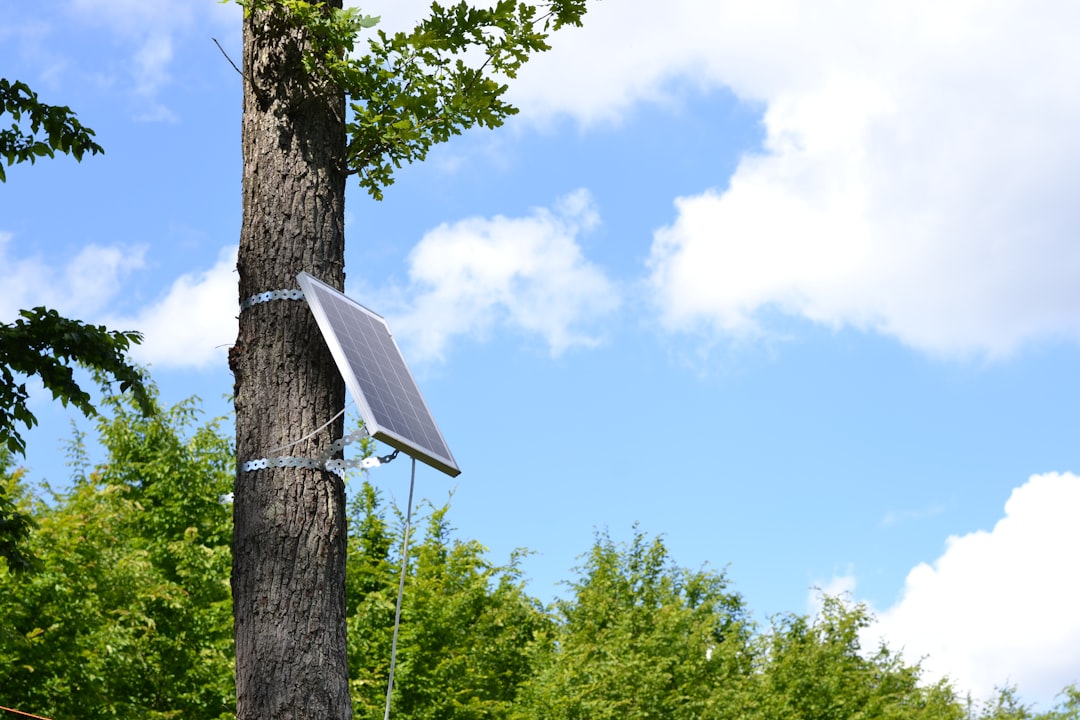
Posted by Mr Solar Panels Ireland on 2024-12-02
Zero VAT makes solar panels more affordable.

Posted by Mr Solar Panels Ireland on 2024-11-23
How to keep your solar panels in top shape.

Posted by Mr Solar Panels Ireland on 2024-11-01
How long do solar panels really last?
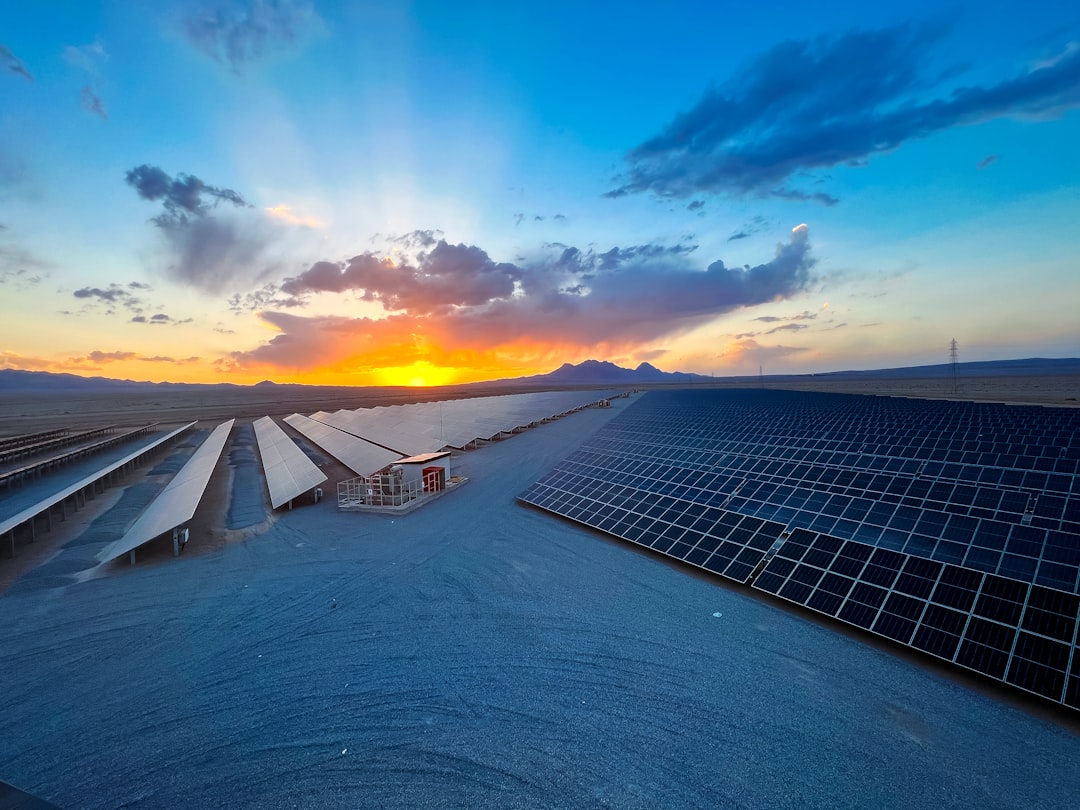
Posted by Mr Solar Panels Ireland on 2024-06-20
On the other hand, polycrystalline silicon panels offer a more cost-effective solution. Solar Panel Quotes plays a pivotal role by offering a service that provides potential solar panel purchasers with three competitive quotes from reputable solar PV providers. This energy can then be used during periods of low solar output or at night, which maximizes the system's utility and minimizes reliance on the electrical grid.
Environmentally, solar panels decrease reliance on fossil fuels and contribute to a reduction in greenhouse gas emissions, aligning with global efforts to combat climate change. Though they have slightly lower efficiency, they are well-suited for installations where roof space is ample and budget considerations are paramount. environmentally friendly
This extensive understanding of solar panel costs and benefits should serve as a reliable guide for anyone considering solar energy in Ireland, ensuring that they are well-informed and prepared to make decisions that will benefit both their wallets and the planet. The average cost of installing solar panels in Ireland typically ranges from €6,000 to €18,000.
The Irish government supports the adoption of solar energy through various financial incentives, such as grants from the Sustainable Energy Authority of Ireland (SEAI), and initiatives like the reduction of VAT to zero on solar equipment, which significantly lower the upfront costs of solar installations. The price of installing solar panels generally falls between €6,000 and €18,000, depending on a variety of factors such as the size of the system, the type of panels used-whether monocrystalline or polycrystalline silicon-and the addition of components like battery storage and inverters.
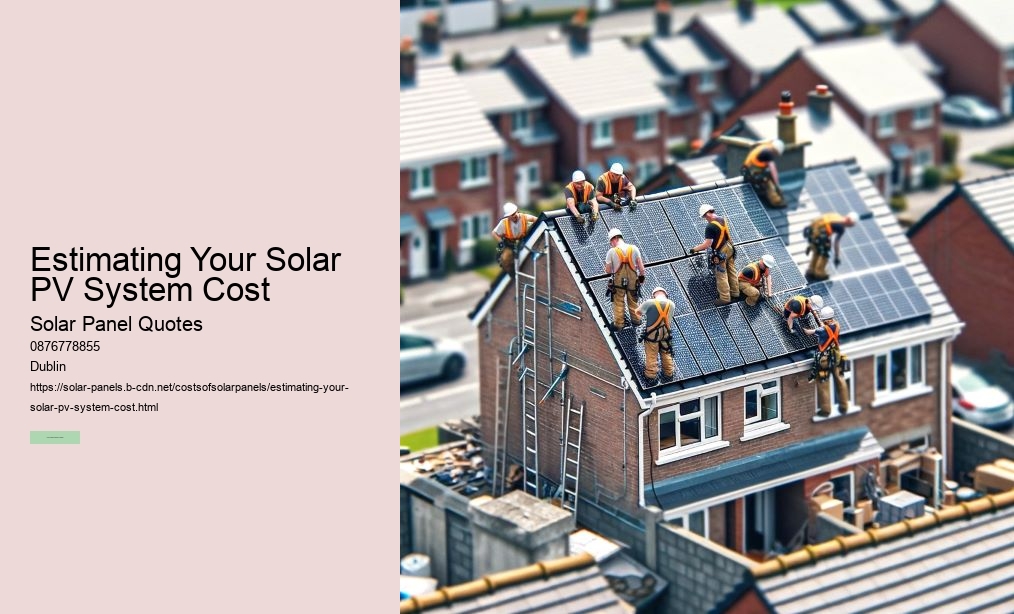
The Irish government encourages the adoption of solar technology through various incentives, including grants from the Sustainable Energy Authority of Ireland (SEAI) and reductions in VAT on solar equipment.
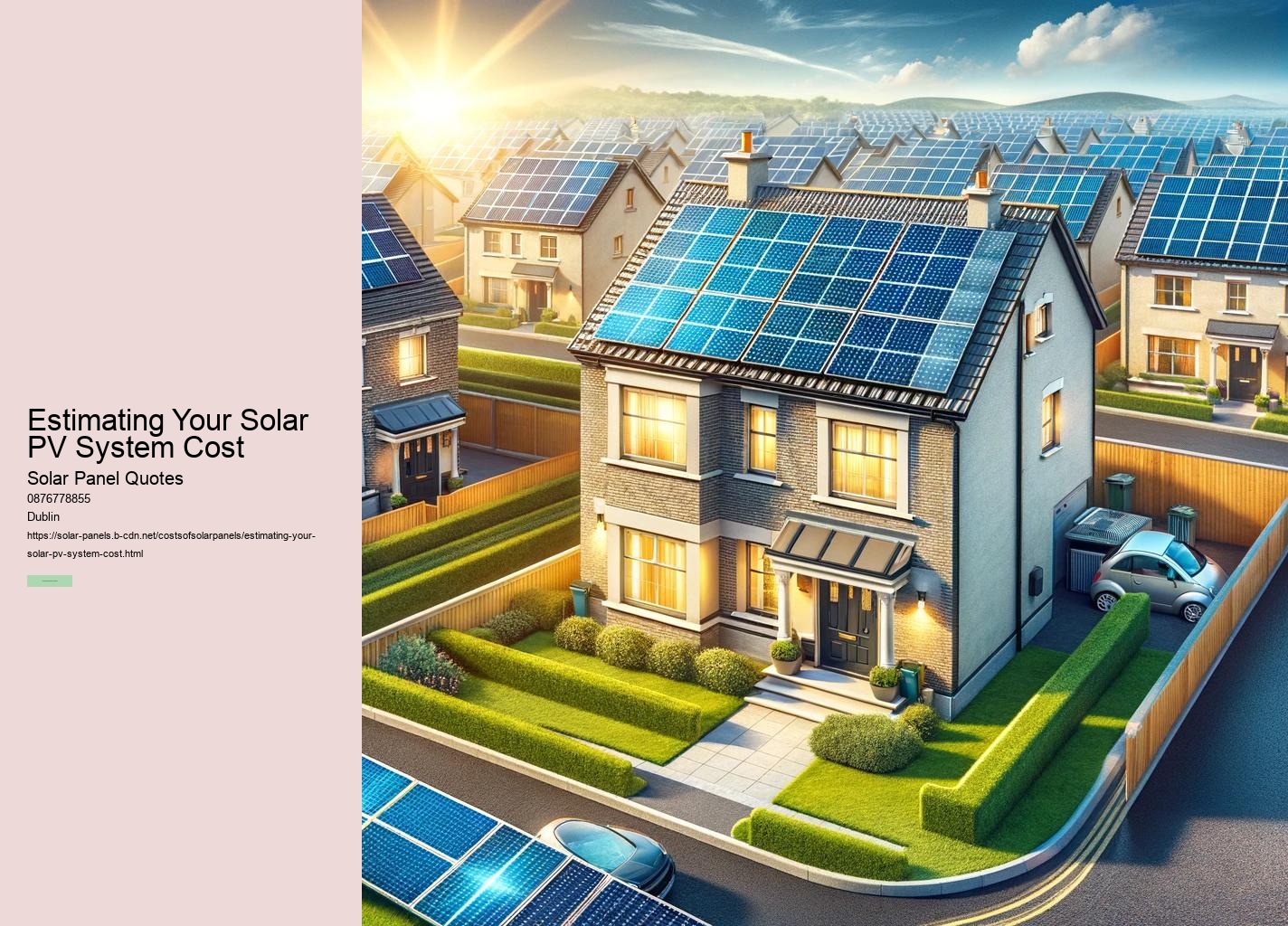
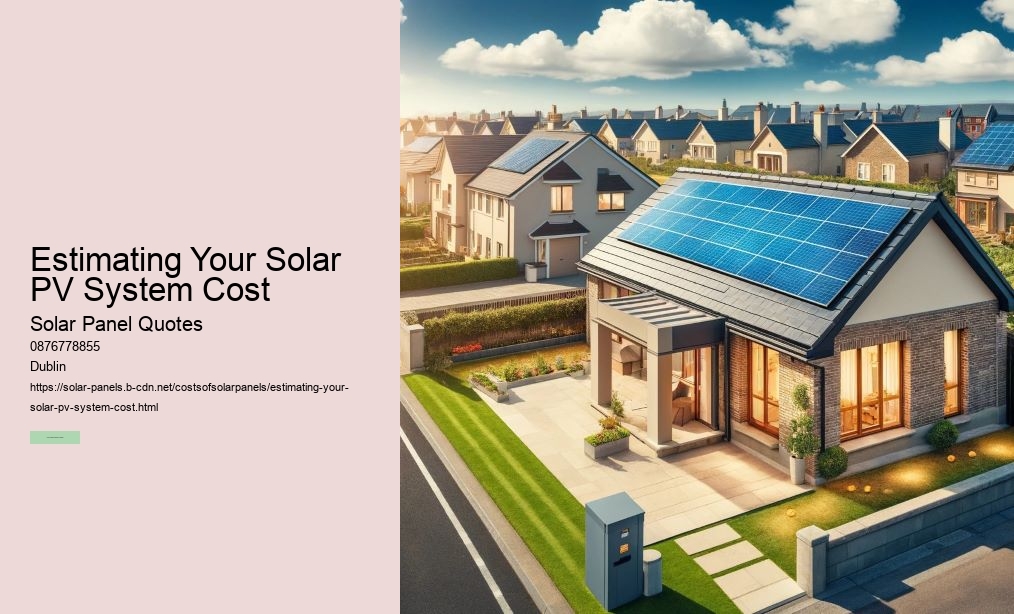
Although more expensive, these panels maximize electricity output from smaller areas, enhancing the return on investment over time. This service ensures that customers have the opportunity to compare different systems and prices, helping them to make an informed decision that suits their specific energy needs and budget constraints.
By facilitating access to multiple quotes from quality providers, Solar Panel Quotes simplifies the purchasing process, enhances customer satisfaction, and promotes transparency within the solar industry.
When talking about the cost of solar panels in Ireland, it's important to provide an accurate and detailed exploration of various elements that impact both the initial expenses and the long-term economic returns of installing a photovoltaic system.
By facilitating access to multiple high-quality providers, Solar Panel Quotes simplifies the decision-making process, boosting consumer confidence and satisfaction.
The long-term financial benefits of solar panels are significant.
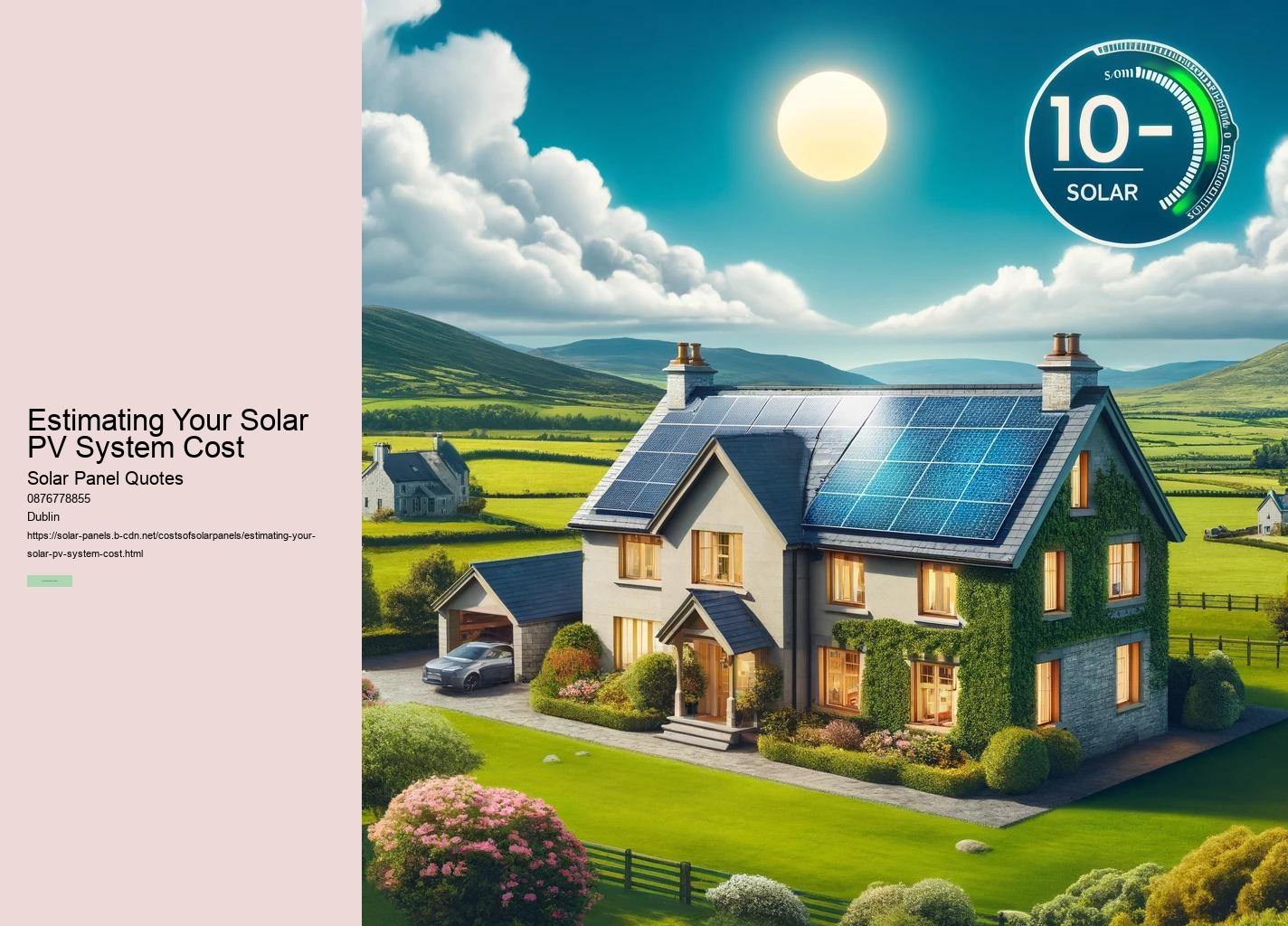
The Irish climate, despite its variability, receives sufficient sunlight to make solar energy viable for most homes and businesses. Environmental benefits are equally compelling.
This comparison tool simplifies the decision-making process, helping customers make informed choices with confidence.
Certifications, experience, and customer feedback are key indicators of a company's reputation and operational standards.
Proper installation and strategic placement of solar panels can optimize their performance, ensuring effective energy production even on less sunny days.

Solar panels require minimal maintenance, primarily involving regular cleaning and periodic checks to ensure they are functioning optimally.
Yes, installing solar panels can increase home value by improving energy efficiency and attractiveness to potential buyers who value sustainability.
Yes, the Irish government offers several incentives, including SEAI grants and a reduction in VAT on solar equipment to promote solar energy adoption.
Solar panels typically pay for themselves within 5 to 7 years in Ireland through savings on electricity bills.
Yes, the Irish government offers several incentives, including SEAI grants and a reduction in VAT on solar equipment to promote solar energy adoption.
Solar panels require minimal maintenance, primarily involving regular cleaning and periodic checks to ensure they are functioning optimally.
Yes, given the rising cost of electricity and the availability of government incentives, solar panels are a financially sound and sustainable investment in Ireland.
Solar panels require minimal maintenance, primarily involving regular cleaning and periodic checks to ensure they are functioning optimally.